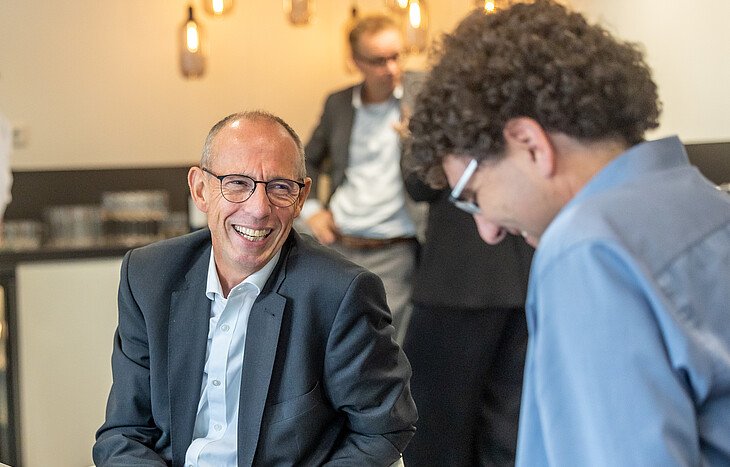

Power and influence dynamics are at play in every workplace interaction, whether you realise it or not. The ability to master these dynamics effectively is key to personal success and leadership development. Your effectiveness as a leader depends not only on your technical expertise but also on your political skills – especially your ability to manage power, influence, and relationships.
Prof. Dirk van Dierendonck and executive coach Eline Peeters dived into what will help leaders to master power and influence dynamics in their organisations, offering solutions on how to overcome them, while working toward a healthy and productive work environment. Here are three critical aspects of power dynamics that you must master to elevate your personal leadership effectiveness, along with strategies to overcome related challenges.
In modern organisations, there’s more than formal authority when it comes to influence. Whether you're working on (cross-functional) management teams or leading a project, you’ll need to inspire action from colleagues beyond what they will do based on your position. This can be difficult when others do not feel obligated to listen or follow your direction.
Imagine you're leading a management team, but key team members aren't prioritising the tasks that need to be done in the right order. You may find it challenging to get their buy-in without escalating the issue or straining relationships. This situation can quickly undermine your effectiveness and the success of a project. Mastering the art of influencing beyond authority is essential to overcoming such hurdles. By understanding the power dynamics at play, you can learn to build alliances, negotiate effectively, and engage others in ways that inspire co-operation.

Building strong relationships with your superiors is central for a healthy and progressing career trajectory. But many managers struggle to influence decisions at higher levels. If you can't effectively communicate your ideas or showcase your value to senior leadership, it may affect your career growth and limit your influence in the organisation.
You’ve come up with a cost-saving initiative that could benefit your department, but when you present the idea to upper management, it doesn’t gain traction. Despite its merit, you realise that you're not effectively aligning your pitch with their priorities, or perhaps you're not leveraging the right relationships to get support.
To improve your upward influence, you must refine your communication and persuasion skills, while also understanding the priorities and concerns of your leadership. Learning how to map power structures and build credibility with decision-makers can enhance your ability to drive initiatives forward.
Power imbalances within teams can affect collaboration and morale. When one or two individuals dominate decisions that are being made, others may feel undervalued or disengaged. This dynamic not only affects team performance but can also limit your ability to lead and contribute effectively.
You're in a meeting with your team, and a few dominant voices consistently steer the discussion with their personal agendas. Power struggles dominate meetings and you struggle to insert your perspective. Over time, this leads to frustration and diminishes overall effectiveness of the group.
Addressing power imbalances requires a strong understanding of interpersonal dynamics and conflict resolution. You need to learn how to assert yourself diplomatically, facilitate balanced discussions, and create an inclusive environment where all voices are heard.
Mastering power and influence is a critical skill for any leader. By understanding and addressing these common challenges, you can create a more inclusive, transparent and dynamic work environment. The Mastering Power and Influence programme at RSM provides the tools and strategies you need to effectively manage power in your organisation.
For more information about how this programme can enhance your leadership skills and drive positive change in your organisation, visit our programme page.
